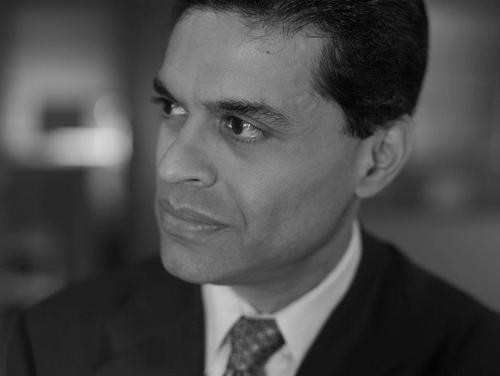
Time magazine and CNN has suspended an Indian-American journalist and author, Fareed Zakaria, for plagiarizing some sections of his column "The Case for Gun Control" from historian Jill Lepore's work in the New Yorker.
"He wrote a shorter blog post on CNN.com on the same issue which included similar unattributed excerpts. That blog post has been removed and CNN has suspended Fareed Zakaria while this matter is under review," CNN said in a statement.
He was suspended on Friday after he admitted and apologized for the terrible mistake he did. Zakaria's column in Time's Aug. 20 issue includes some paragraphs that were similar to paragraphs in Lepore's work that was published in April.
On Friday, he issued a statement apologizing for the mistake he did. "Media reporters have pointed out those paragraphs in my TIME column this week bear close similarities to paragraphs in Jill Lepore's essay in the April 22nd issue of The New Yorker. They are right. I made a terrible mistake. It is a serious lapse and one that is entirely my fault. I apologize unreservedly to her, to my editors at TIME, and to my readers," he said in a statement.
The resemblances in the two columns were first noted by Cam Edwards at NRANews.com who informed Tim Graham of Newsbusters that Zakaria seemed to plagiarize a paragraph, according to Graham.
Zakaria, 48, is a Harvard University student and writes a column for TIME magazine and hosts a show on CNN.
Time spokesman Ali Zelenko in a statement said that the magazine has accepted Zakaria's apology, but he is suspended for a month since he violated their standards set for their columnists.
"TIME accepts Fareed's apology, but what he did violates our own standards for our columnists, which is that their work must not only be factual but original; their views must not only be their own but their words as well. As a result, we are suspending Fareed's column for a month, pending further review," Times spokesman said.
Zakaria's paragraph in his column that got him into trouble:
Adam Winkler, a professor of constitutional law at UCLA, documents the actual history in Gunfight: The Battle over the Right to Bear Arms in America. Guns were regulated in the U.S. from the earliest years of the Republic. Laws that banned the carrying of concealed weapons were passed in Kentucky and Louisiana in 1813. Other states soon followed: Indiana in 1820, Tennessee and Virginia in 1838, Alabama in 1839 and Ohio in 1859. Similar laws were passed in Texas, Florida and Oklahoma. As the governor of Texas (Texas!) explained in 1893, the "mission of the concealed deadly weapon is murder. To check it is the duty of every self-respecting, law-abiding man."
The original paragraph written by Jill Lepore in The New Yorker:
As Adam Winkler, a constitutional-law scholar at U.C.L.A., demonstrates in a remarkably nuanced new book, "Gunfight: The Battle Over the Right to Bear Arms in America," firearms have been regulated in the United States from the start. Laws banning the carrying of concealed weapons were passed in Kentucky and Louisiana in 1813, and other states soon followed: Indiana (1820), Tennessee and Virginia (1838), Alabama (1839), and Ohio (1859). Similar laws were passed in Texas, Florida, and Oklahoma. As the governor of Texas explained in 1893, the "mission of the concealed deadly weapon is murder. To check it is the duty of every self-respecting, law-abiding man.

















